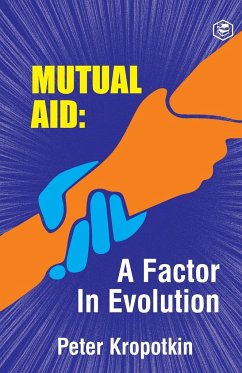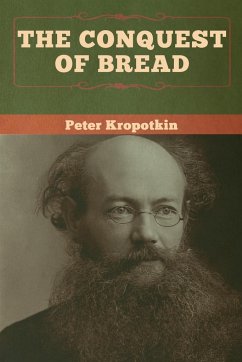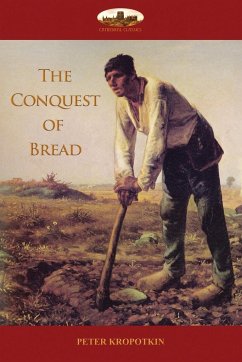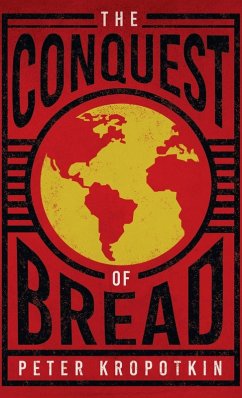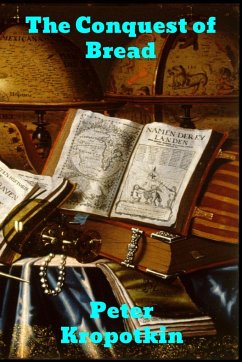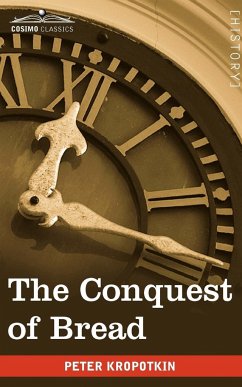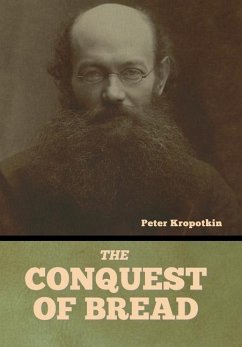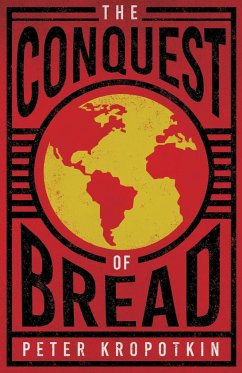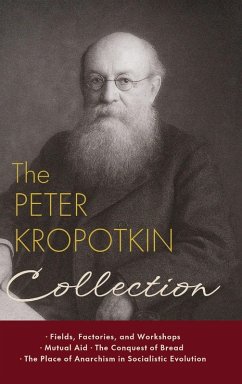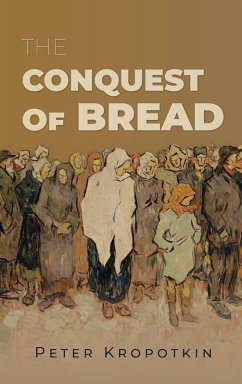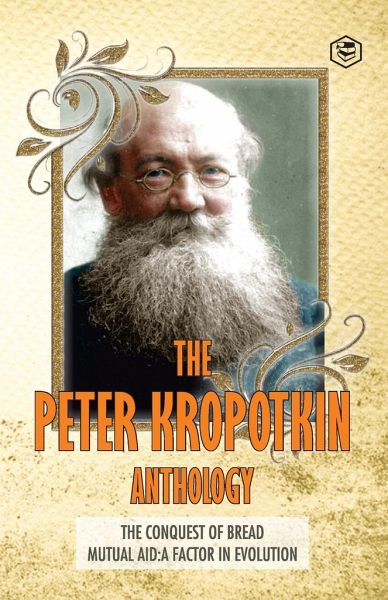
The Peter Kropotkin Anthology The Conquest of Bread & Mutual Aid A Factor of Evolution
Versandkostenfrei!
Versandfertig in 1-2 Wochen
25,99 €
inkl. MwSt.

PAYBACK Punkte
13 °P sammeln!
Two works in one collection. The Peter Kropotkin Anthology will awaken in you a new perspective as Peter Kropotkin viewed the communist society in which he lived during the late 1800s and early 1900s. Story 1: The Conquest of Bread The Conquest of Bread, also known colloquially as The Bread Book, is an 1892 book by the Russian anarcho-communist Peter Kropotkin. Originally written in French, it first appeared as a series of articles in the anarchist journal Le Révolté. It was first published in Paris with a preface by Élisée Reclus, who also suggested the title. Between 1892 and 1894, it wa...
Two works in one collection. The Peter Kropotkin Anthology will awaken in you a new perspective as Peter Kropotkin viewed the communist society in which he lived during the late 1800s and early 1900s. Story 1: The Conquest of Bread The Conquest of Bread, also known colloquially as The Bread Book, is an 1892 book by the Russian anarcho-communist Peter Kropotkin. Originally written in French, it first appeared as a series of articles in the anarchist journal Le Révolté. It was first published in Paris with a preface by Élisée Reclus, who also suggested the title. Between 1892 and 1894, it was serialized in part in the London journal Freedom, of which Kropotkin was a co-founder. In the work, Kropotkin points out what he considers to be the defects of the economic systems of feudalism and capitalism and why he believes they thrive on and maintain poverty and scarcity. He goes on to propose a more decentralized economic system based on mutual aid and voluntary cooperation, asserting that the tendencies for this kind of organization already exist, both in evolution and in human society. The Conquest of Bread has become a classic of political anarchist literature. Story 2: Mutual Aid: A Factor of Evolution Mutual Aid: A Factor of Evolution is a 1902 collection of anthropological essays by Russian naturalist and anarchist philosopher Peter Kropotkin. The essays explore the role of mutually-beneficial cooperation and reciprocity (or ""mutual aid"") in the animal kingdom and human societies both past and present. It is an argument against theories of social Darwinism that emphasize competition and survival of the fittest, and against the romantic depictions by writers such as Jean-Jacques Rousseau, who thought that cooperation was motivated by universal love. Instead Kropotkin argues that mutual aid has pragmatic advantages for the survival of human and animal communities and, along with the conscience, has been promoted through natural selection. Mutual Aid is considered a fundamental text in anarchist communism.



